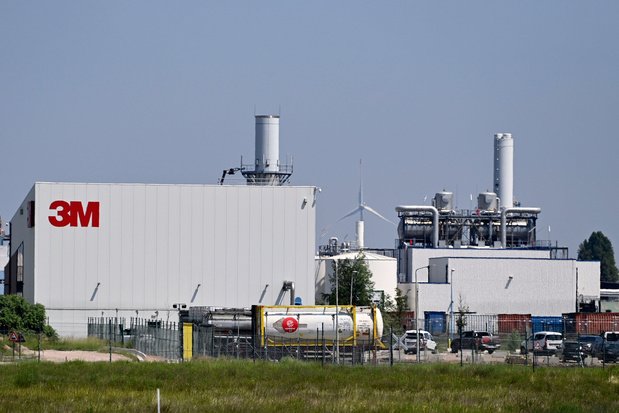Blood samples taken from residents in the vicinity of the 3M factory in Zwijndrecht show abnormally high levels of the chemical PFOS, according to a local action group.
The samples were taken from nine residents of the Zwijndrecht area and one person living in nearby Linkeroever. They were examined by toxicologist Professor Jacob de Boer, an expert from Amsterdam University on the family of PFAS chemicals, to which PFOS belongs.
He found elevated levels of PFOS in all ten samples, ranging from 3.4 times the threshold limit of 6.9 nanograms of PFOS in a millilitre of blood, set by the European Food Safety Authority (EFSA) to a staggering 168 times the EFSA limit. Prof. De Boer described this range of levels as “too high to unprecedentedly high”.
PFOS is a chemical used to repel water and oil from fabric and other materials and was produced by 3M, the company best known for its Post-It notes, until 2002. High levels of PFOS were discovered in the soil in the area when work started on the Oosterweel motorway connection in 2018 but, despite warnings, nothing was done.
The chemical has been linked to various medical problems, including high cholesterol, hormone imbalances and even cancer. The risks are higher for people who eat foods exposed to the chemical, such as vegetables and eggs from their own gardens – which most of those sampled did.
The sample of those studied is small, Prof. De Boer admitted to De Morgen, but the results are still impressive.
“All samples are above the most recent EFSA threshold and most are many times above. And PFOS really stands out,” he said. “It is the PFOS values that, much more than the other PFAS values, are always so high. That can not be a coincidence."
The analysis was organised and financed by Grondrecht, a local action group formed to demand action on the pollution problem. While politicians have organised a committee of enquiry, Grondrecht are demanding action.
“People with high values should receive medical follow-ups free of charge. If there is damage to health, they must receive compensation," said lead campaigner Eva Frooninckx. The group is also demanding that pregnant and breastfeeding women in the area are screened and that children under the age of twelve are also tested.

